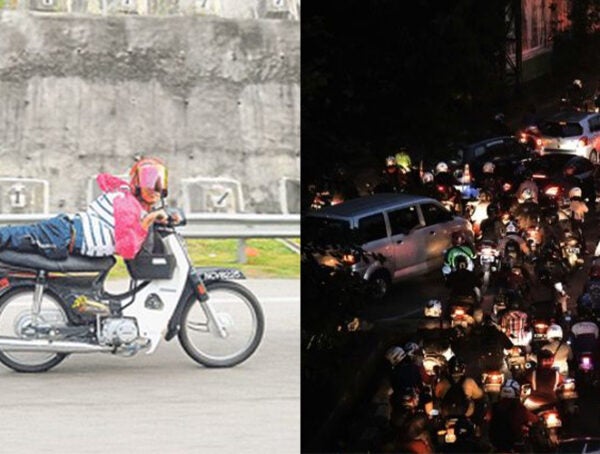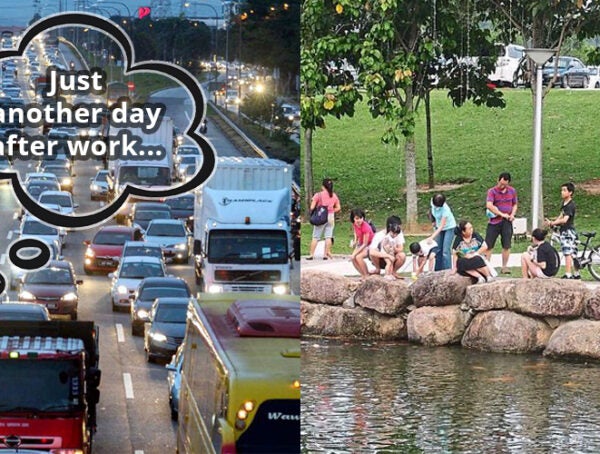Disclaimer: In Real Life is a platform for everyday people to share their experiences and voices. All articles are personal stories and do not necessarily echo In Real Life’s sentiments.

Buying a car is sometimes treated as a rite of passage that every young Malaysian adult has to go through. It’s like a starter kit to adulthood and a signal to the world that you are ready for financial responsibility.
For some, a car is a symbol of independence, status, or an extension of their personality. But for others, a car can also be a financial hole that is easy to fall into and difficult to climb out of.
In recent news, a teacher went viral on Facebook for sharing that despite being in a double income household, she and her husband barely make enough after paying off their monthly car payments.
According to this government educator with three kids, they only have RM550 to spare after paying off their Proton x70 and Perodua Bezza. Her Facebook post went viral, inviting criticism about poor financial planning from netizens and self-proclaimed financial gurus.
Some advised her to sell off the Proton x70, which they considered a “luxury expenditure”, while others advised her to keep it but start looking for additional sources of income.

Are we relying too much on cars in Malaysia?
Personal financial planning aside, this story sparked a discussion about how the over-reliance on cars are shackling Malaysians into debt.
According to JPJ, we have an estimated 23 million vehicles active on the roads. That is a fairly bloated number when you compare it to our current population size of 32.6 million.
It is becoming more and more common to see households with at least 2 cars, with some families considering it the bare minimum in order to get through the week.
But is this really the case?
Despite improvements to our public transportation system and the availability of ride sharing apps, Malaysians are still adamant about owning their own vehicles.
Why are we so willing to get into debt despite rising costs of living and stagnating wages? Are we simply too good for public transportation or are there underlying reasons for our over-dependence on cars?
A research published in the International Journal of Academic Research in Business and Social Sciences attempted to tackle this issue. The 2022 article titled The Demographic Impact on Car Ownership in Kuala Lumpur surveyed 370 residents on their perceptions and attitudes towards car ownership.
These were the results:
Image source: Datawrapper.
Unsurprisingly, the participants cited convenience and an inevitable necessity of modern living as one of the top reasons to own a car.
Both questions scored overwhelmingly higher amongst the female participants, which makes sense as women tend to bear the brunt of the role as caregivers, and they would prefer their own vehicle to run errands and send their children to school.
There’s also the issue of safety, as there is always the unpleasant risk of sexual harassment on public transport, not to mention protection from the harsh elements of Malaysian weather.
As to whether or not they see a car as an extension of their wealth, more than half of the respondents agreed that they make purchasing decisions to elevate their public perception.
More women see car ownership as a boost to social status
Interestingly, more women consider car ownership as a boost to their social status compared to men. 42.20% of female respondents see car ownership as an indicator of individual success (compared to 28.40% men) while 30.5% consider it an indicator of one’s family wealth (compared to 24.6% men).
It should be noted that the research has a disproportionate amount of participants from the B40 income bracket. 308 of the 360 participants earn less than RM4,849 a month, and more than half of them belong to the 21 - 30 year old age bracket.
While this poor sample size makes for an inaccurate representation of the existing demographic, it at least gives us a bit of insight into the mindset and challenges of those in lower income groups.
To people in this category, car ownership is not an ego boost but a necessary expenditure for survival and socio-economic mobility. Research has shown that vehicle ownership increases opportunities for employment, and the further one lives outside of the city area, the more likely that they become car dependent.
It’s easy to look at someone’s financial situation and boil it down to just ignorance and poor planning. They may have come from underprivileged backgrounds with few options to move up in life.
And until measures are taken to improve our public transportation system and encourage economic growth outside of KL we will continue being slaves to our four-wheel debt masters.
What do you think of this story?
Let us know in the comments!
Submit your story to ym.efillaerni@olleh and you may be featured on In Real Life Malaysia.
Read also: “Ask your CEO to try lah!” Malaysians are not happy with the KTM trains, here’s why
“Ask Your CEO To Try Lah!” – Malaysians Not Happy With The KTM, Here’s Why
You might also like
More from Real Skills
How I Saved Almost RM50,000 On Buying My First Car
Here's how this Malaysian man with a RM3,500 salary saved RM50,000 on his first car.
Angry M’sian Boss Demands Unpaid Overtime Over Raya, Causes 9 Staff To Quit
An anonymous employee at a local SME shares how a bad-tempered boss eventually caused 9 staff to quit before Hari …
I Studied In Chinese School As A Malay Boy, Here’s What I Learnt
Every time I used Mandarin outside of school, family members would come up to me at gatherings and ask me …


















